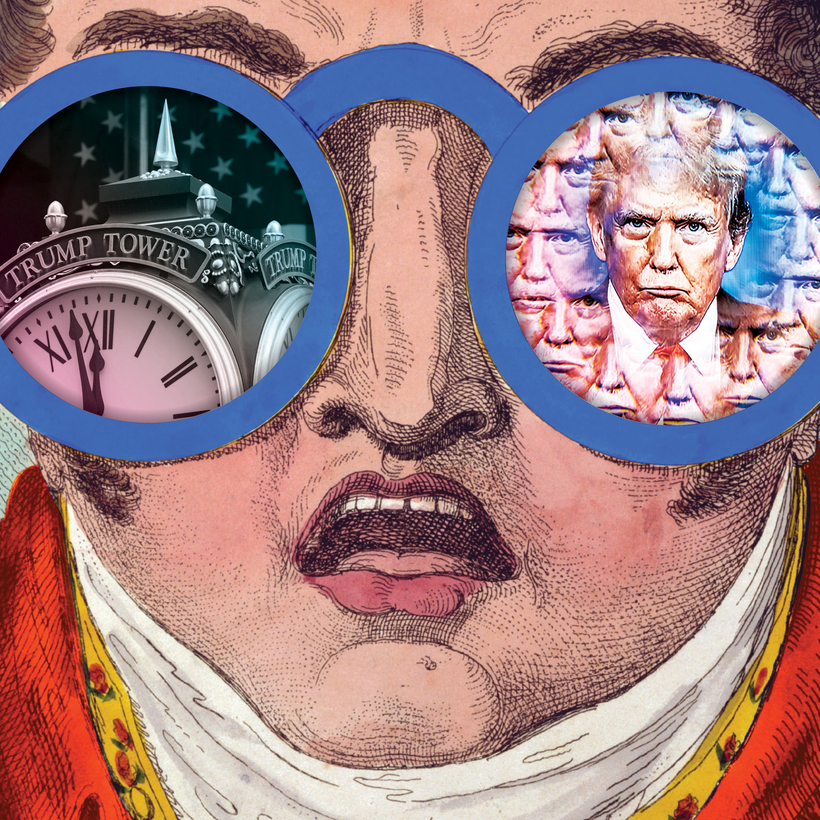You are given a time machine to travel back to four discrete points in recent history, each time assuming the form of another human, in order to prevent Donald Trump from ever becoming president.
1987
You become the cover designer of Trump’s first book, The Art of the Deal. The original cover portrays Trump with Central Park in the background, looking every bit a confident Master of the Universe. Just before the book goes to press, you swap it out for a candid photo you took of a sick Trump blowing his nose into a much-used Kleenex. No one at the publishing house vets the new cover in advance, nor does the author, who is irate at the damage it will do to his public image.


